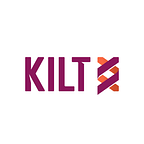The KILT Suite: Introducing OpenDID and the CType Hub
The latest additions to the tech stack make it easy to integrate KILT without blockchain experience.
OpenDID, a no-code solution for incorporating a KILT login into a website, and the CType Hub, a hub for existing and new credential types, are now available for use.
Combined with the Code Examples for Attesters (Issuers) and Verifiers, they comprise the KILT Suite of tools and tech developed to make integrating KILT easier for teams with no experience of working with blockchain. This enables teams to develop and use cutting-edge decentralized identity solutions in line with the World Wide Web Consortium (W3C) standards.
OpenDID
OpenDID is an off-the shelf software component for websites that can be used to implement a login with a KILT credential.
The service authenticates users by generating JWT (JSON Web) tokens — an open standard used to securely share information between two parties — using the user’s decentralized identifier (DID) and verifiable credentials. These tokens can be used with any service that supports JWT tokens, acting as a bridge between the decentralized identity world and the centralized authentication world.
Like Web2 login providers such as Facebook and Google, OpenDID uses the OpenID-Connect flow: the user is directed to the login page and then redirected back to the website application. The redirect will contain a JWT token in the URL, which can be used to authenticate the user. This token contains the DID of the user and the claims from their verifiable credential. In this way, the Verifier (website owner) can check if the user is allowed to access the website.
OpenDID makes integrating a KILT login easier, as the website owner can choose a credential they wish to accept and incorporate it into the OpenDID flow. This means that instead of starting from scratch and collecting or storing the information needed from their customers, a business could accept pre-existing credentials provided by issuers (Attesters) they trust that contain that information. For example, currently a website could decide to integrate a login using email credentials provided by SocialKYC.
This is an exciting development, making logging in with your decentralized identity as easy as logging with mainstream Web2 identity providers!
OpenDID is open source and has no license fees. It was built by BOTLabs GmbH, the initial developer of KILT Protocol.
CType Hub
The CType Hub works both as a registry of existing CTypes and as a place to create new CTypes.
A CType is the schema of a verifiable credential on KILT that outlines its properties and types, ensuring all the required information is requested. For example, a passport CType would specify that attributes such as name, date of birth, nationality etc. are required for issuing a passport credential.
The Hub will display the properties of each existing CType, the DID of its creator (or web3name, if available), its total number of attestations, and (optionally available for CTypes created on the CType Hub) the associated description and tags.
Both Attesters (Issuers) and Verifiers can use the Hub to see if a credential CType format containing the information they require already exists on the KILT blockchain. If not already available, Attesters (Issuers) can create their own credential in the Hub. The Hub will be continually updated.
The CType Hub was built by galaniprojects GmbH and funded by a KILT Treasury grant.
Code Examples
OpenDID and the CType Hub complement the TypeScript Code Examples for Attesters (Issuers of verifiable credentials) and Verifiers released recently.
Each code example works like boilerplate code and includes only the necessities to make the application run. Each can be optimized and secured to meet individual requirements.
See the documentation for Attesters (Issuers) here and for Verifiers here.
SDK
In addition to the Code Examples, the KILT TypeScript SDK (software development kit) is available to enable developers with no blockchain experience to build decentralized applications (dapps) and create new business use cases around identity. It provides a collection of classes and methods to interact with the KILT blockchain.
The team is continually working on improving and upgrading the SDK — keep an eye out for Version 1.0, coming soon.
Start Building
All of the above tech is open source and requires no license fee to use or to build on.
For testing, builders can create their solutions for free on the Peregrine testnet. Peregrine tokens (which have no monetary value) can be obtained from the faucet, and test versions of the wallet and applications built on KILT are available here.
Once built and tested on Peregrine, applications can then be configured to work on the KILT blockchain.
A video on integrating OpenDID into a website is coming soon, covering integrating OpenDID and finding your CType. Stay tuned — we’ll announce it on X!
About KILT Protocol
KILT is an identity blockchain for generating decentralized identifiers (DIDs) and verifiable credentials, enabling secure, practical identity solutions for enterprise and consumers. KILT brings the traditional process of trust in real-world credentials (passport, driver’s license) to the digital world, while keeping data private and in possession of its owner.
